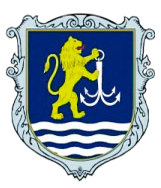CONCEPTUALIZATION OF SITUATIONAL PL (PARTY LOGISTICS) IDENTIFICATION OF TRANSPORT SERVICE PROVIDERS
Abstract
Introduction. The traditional practice of classifying transport service providers based on the Party Logistics (PL) model is rooted in a fixed typology of companies along a scale from 1PL to 5PL, which often fails to reflect the true functional roles they play in specific project or contractual interactions. This leads to methodological inconsistencies, analytical ambiguity, and the risk of pseudo-scientific interpretations of PL levels. The purpose of this study is to develop the theoretical and methodological foundations, as well as practical tools for situational identification of transport service providers within the PL model, taking into account the dynamics of their functional roles within specific client interactions. To achieve this goal, the article is logically and sequentially structured: from formulating an alternative scientific paradigm that views the PL level as a situational functional role of transport service providers, to the concept of situational PL identification as a tool for implementing this paradigm, and a conceptual model that defines its principles, criteria, and evaluation logic; concluding with the justification of an appropriate analytical tool for the practical implementation of the model in transport service management. Results. The study formulates a new paradigm that contrasts functional PL identification of transport service providers with the formal «labeling» of these companies within simplified classifications. The concept of situational PL identification is proposed, based on defining the service role of the provider depending on the level of integration, digital engagement, management participation, and the distribution of responsibility within a specific client interaction. An analytical evaluation methodology is developed, which includes: a Likert scale for collecting qualitatively qualified expert evaluations; the Analytic Hierarchy Process (AHP) for determining the weight coefficients of evaluation criteria; fuzzy logic tools for processing vagueness and uncertainty in expert judgments. Scientific novelty. The scientific novelty of the research lies in: formulating a conceptual approach to PL identification of transport service providers based on the context-dependent functional role of a company within the supply chain; justifying a new scientific paradigm of situational PL identification, which contrasts with the widespread practice of declarative marketing positioning (especially among transport and freight forwarding companies) within a fixed PL hierarchy; developing the concept of situational PL identification as a tool for implementing this paradigm, ensuring an objective determination of the company’s level of integration into the supply chain structure of a specific client; forming a comprehensive analytical toolkit for the situational PL identification task, which combines qualitative expert assessments (Likert scale), weighted criterion structuring (AHP method), and uncertainty processing using fuzzy logic. Practical value. The practical value lies in creating a universal tool for the systematic positioning of transport service providers in supply chains–taking into account actual functions performed, integration depth, and digital maturity. This allows for the avoidance of erroneous or marketing-driven assessments. Conclusions. The proposed approach provides more accurate identification of the level of service integration of transport service providers in the context of a dynamic market, minimizes the risks of incorrect positioning, and can be useful for both service clients and analysts, consultants, and strategists involved in the evaluation of supply chain participants.
Downloads
References
2. Кириллова О. В. Теоретичні основи управління роботою флоту у транспортно-технологічних системах : дис. ... д-ра техн. наук : 05.22.01 – транспортні системи. Одес. нац. мор. ун-т. Одеса, 2016. 470 с.
3. Король В. Ю. (Кириллова В. Ю.), Кириллова О. В. Експедирування і логістика: термінологічні протиріччя, підміна понять і їх розмежування. Транспортні системи та технології перевезень. 2018. № 15. С. 42–51. DOI: https://doi.org/10.15802/tstt2018/150197.
4. Кириллова О. В., Король В. Ю. (Кириллова В. Ю.). Застосування «наукоподібних» словоформ терміна «логістика» у сфері транспортних технологій: проблема або сучасна тенденція. Технології та інфраструктура транспорту : матеріали міжнар. наук.-техн. конф., Харків, 14–16 трав. 2018 р. Харків : УкрДУЗТ, 2018. С. 190–193.
5. Berglund M., Van Laarhoven P., Sharman G., Wandel S. Third-party logistics: is there a future? The International Journal of Logistics Management. 1999. Vol. 10 (1). P. 59–70.
6. Sheffi Y. The Resilient Enterprise: Overcoming Vulnerability for Competitive Advantage. MIT Press, 2005.
7. Fulconis F., Paché G., Saglietto L. 4PL and models of strategic alignment. NETCOM: Réseaux, communication et territoires. 2007. Vol. 21 (3–4). P. 395–406. DOI: 10.4000/netcom.2294. URL: journals.openedition.org/netcom/2294.
8. Langley C.J., Capgemini Consulting, Penn State University, Panalpina. The 17th Annual Third-Party Logistics Study: The State of Logistics Outsourcing. 2013. URL: https://www.kornferry.com/insights/this-week-in-leadership/508-2013-17th-annual-third-party-logistics-study.
9. Hosie P., Sundarakani B., Tan A., Koźlak A. Determinants of Fifth Party Logistics (5PL): Service Providers for Supply Chain Management. International Journal of Logistics Systems and Management. 2012. Vol. 13 (3). P. 287–316. DOI: 10.1504/IJLSM.2012.049700.
10. Gruchmann T., Melkonyan A., Krumme K. Logistics Business Transformation for Sustainability: Assessing the Role of the Lead Sustainability Service Provider (6PL). Logistics. 2018. Vol. 2, Issue 4. DOI: 10.3390/logistics2040025.
11. Logistics Insider. 6PL and Beyond: A Leap Towards Logistics Excellence. 2024. URL: https://www.logisticsinsider.in/6pl-and-beyond-a-leap-towards-logistics-excellence/.
12. Maersk. What are 1PL, 2PL, 3PL, and 4PL logistics in supply chain management? 2024. URL: https://www.maersk.com/logistics-explained/supply-chain-management/2024/04/24/navigate-the-world-of-partylogistics-with-our-guide-to-1pl-2pl-3pl-4pl-models.
13. Решетнікова О. В., Боровик Т. В., Терещенко І. О. Аналіз та перспективи розвитку ринку логістичних послуг в Україні. Економіка і управління. 2020. № 2. С. 24–29. URL: http://dspace.e-u.edu.ua/handle/123456789/687.
14. Свічинський С. В. Огляд можливостей сучасних постачальників транспортно-логістичних послуг в інтегрованих транспортних системах. Автомобіль і суспільство. 2023. № 1 (20). С. 239–247. DOI: 10.36910/automash.v1i20.1053.
15. Freight Forwarding Company “Dedola”. 10PL Press Release. 2012. URL: https://dedola.com.
16. Колодзієва Т. Еволюція постачальників логістичного сервісу: проблеми теорії та практики. Сучасні проблеми управління підприємствами: теорія і практика : матеріали міжнар. наук.-практ. конф., Харків, Торунь, 18–19 березня 2019 р. URL: https://scholar.google.com.ua/scholar?oi=bibs&cluster=1086421694166831151&btnI=1&hl=ru.

This work is licensed under a Creative Commons Attribution 4.0 International License.





